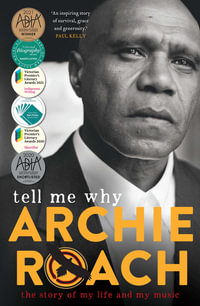
Bad Kids
Race and the Transformation of the Juvenile Court
By: Barry C. Feld
Paperback | 1 February 1999
At a Glance
Paperback
$67.29
Aims to ship in 7 to 10 business days
When will this arrive by?
Enter delivery postcode to estimate
The Progressive reformers who created the juvenile court a century ago saw children as relatively blameless and innocent. But recent decades of rising crime rates associated with urban decay have strained this tolerant view of young offenders. Feld relates the 1967 Supreme Court decision In re Gault to the broader social and legal changes associated with the civil rights movement and the Warren Court's "Due Process Revolution." Although gault mandated more elaborate procedural safeguards in delinquency hearings, ironically, those protections legitimated the imposition of more punitive sanctions.
Since Gault, Feld argues, three decades of judicial, legislative, and administrative reforms have conducted a form of "criminological triage." At the "soft end," reforms have shifted noncriminal status offenders, primarily female and white, out of the juvenile justice system into a "hidden system" made up of private sector mental health and chemical dependency facilities. At the "hard end," states transfer increasing numbers of young offenders, disproportionately minorities, to criminal court for prosecution as adults. Meanwhile, juvenile courts punish more severely those delinquents-again disproportionately minorities-who remain within the increasingly criminalized juvenile justice system.
Feld attributes the current state of affairs to a conceptual flaw inherent in the juvenile court. The juvenile justice system attempts to combine social welfare and social control functions in one organization, but inevitably fulfills both missions badly because of the inherent and irreconcilable contradictions between them. Progressive reformers situated the juvenile court on a number of cultural, legal, and criminological fault lines, where the ideas of child and adult, determinism and free will, immature and responsible, treatment and punishment collide. The past three decades have witnessed a shift from the former to the latter of these binary pairs in response to the racial transformation of cities, the increase in serious youth crime, and the erosion of the rehabilitative assumptions of the juvenile court.
The solution, Feld argues, is to uncouple social welfare from criminal social control. States could try all offenders in one integrated criminal justice system with appropriate modifications to accommodate the youthfulness of younger defendants: a graduated, age-culpability sentencing system, separate youth correctional facilities, and the like. Formally recognizing youthfulness as a mitigating factor would provide youths with greater protections and justice than they currently receive in either the juvenile or criminal justice systems. At the same time such a strategy would enable public policies to address directly the social welfare needs of all young people.
Industry Reviews
ISBN: 9780195097887
ISBN-10: 0195097882
Series: Studies in Crime and Public Policy
Published: 1st February 1999
Format: Paperback
Language: English
Number of Pages: 392
Audience: Professional and Scholarly
Publisher: Oxford University Press USA
Country of Publication: GB
Dimensions (cm): 22.5 x 15 x 2.5
Weight (kg): 0.61
Shipping
| Standard Shipping | Express Shipping | |
|---|---|---|
| Metro postcodes: | $9.99 | $14.95 |
| Regional postcodes: | $9.99 | $14.95 |
| Rural postcodes: | $9.99 | $14.95 |
How to return your order
At Booktopia, we offer hassle-free returns in accordance with our returns policy. If you wish to return an item, please get in touch with Booktopia Customer Care.
Additional postage charges may be applicable.
Defective items
If there is a problem with any of the items received for your order then the Booktopia Customer Care team is ready to assist you.
For more info please visit our Help Centre.
You Can Find This Book In
This product is categorised by
- Non-FictionLawLaws of Specific JurisdictionsCriminal Law & Procedure
- Non-FictionSociety & CultureSocial GroupsEthnic StudiesEthnic Minorities & Multicultural Studies
- Non-FictionSocial Services & WelfareCrime & CriminologyOffendersJuvenile Offenders
- Non-FictionSocial Services & WelfareCrime & CriminologyOffendersRehabilitation of Offenders
- Non-FictionLawLaws of Specific JurisdictionsLegal System in GeneralCourts & Procedure
- Non-FictionSociology & Anthropology























